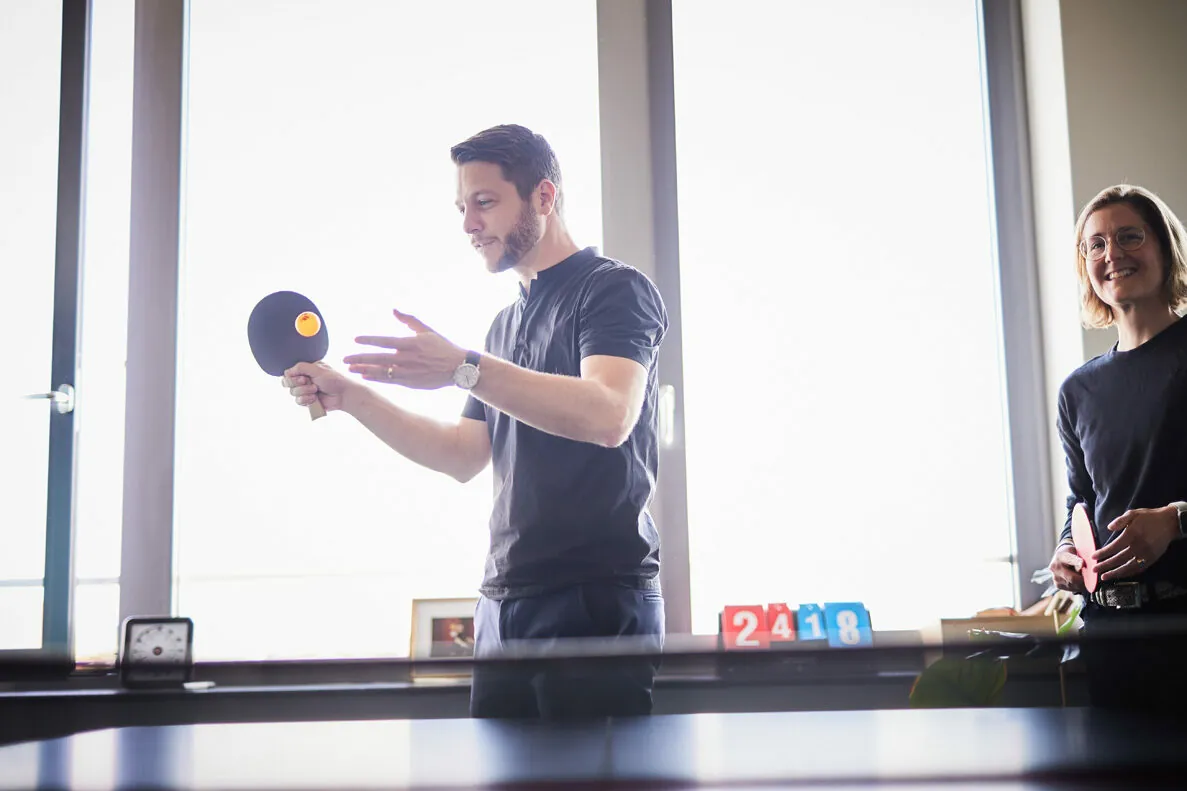People & Culture Development – people are our focus
March 9, 2021

March 9, 2021

Michelle Havel gives us exciting insights into People & Culture Development, its design and implementation and why people are always the focus at valantic.
Hello, Michelle, please tell us a bit about yourself!
Of course. I’ve been part of the People & Culture Development team at valantic for three and a half years. As a psychologist who specializes in labor and organizational psychology, people were always my focus, and this is still the case in my current role.
That sounds interesting, but what do you actually do?
When I examine the world of work and our projects, our employees are working in a very quickly changing business and they have to manage this change – every day. For People & Culture Development, this means specifically that we have to design the framework conditions for all of us so that this agility is possible on all levels. So that all of this works, people have to be the focus. Questions such as “what do our employees need today and what will they need in the future?” and “how can we provide a positive employee experience?” determine my actions. This human touch is especially evident when it comes to employer branding – we want to consciously display “real” valantics on our career page – and this continues in our very personal recruiting process. Then I welcome the new colleagues during valantic onboarding. In addition, I focus on the topic of employee loyalty, role-based organization, management guidelines, employee conferences, feedback culture, and specific personnel development. You can see, Celine, that my tasks are many and varied and they have to go hand-in-hand with our agile company culture.
That sounds fascinating! What requirements does today’s rapidly-changing world pose for our colleagues and what do these requirements mean for People Development at valantic?
We not only want to keep up with the unbelievably high tempo of the working world, we want to remain a step ahead. And this requires an organization that can handle this structurally and culturally. We regard ourselves as a role-based organization and would like to enable our team members to develop faster in roles in which they become experts. In addition to professional expertise, all of this requires strong communicative capabilities and great flexibility.
For professional expertise, we have created the valantic Academy, where specific training programs are developed and offered. That alone is not sufficient, however. We can only successfully implement customer projects if we have persuasive personalities. For this, we offer a People Skills Curriculum, which is constantly being enhanced – and the guiding question is always “What do we have to do and offer for maximum employee and customer satisfaction?”
What does a people skills curriculum look like at a role-based organization?
You might ask why we are talking about people skills instead of soft skills when the concern is characteristics such as empathy, reliability, and trustworthiness. My response: because we think that these characteristics are not “soft” at all, but rather form the basis for a good customer relationship. This is precisely where we want to begin and help our colleagues develop and strengthen these skills.
For the development of people skills trainings, two things were and are important to us:
Guided by the question of which skills our colleagues need in which situations, we have developed offerings focusing on the topics of communication, moderation, time and self-management, and presentations.
With regard to the formats, we want to ensure that there is a high percentage of exercises and that the lessons will stick with our employees. For we believe that a single in-person or virtual encounter will not generally have a long-term effect. That’s why we frequently offer a mix of methods: several training dates, supplementary resources, remote formats, coachings, and collegial discussion sessions. In addition, we are trying to split up a module’s training content into smaller units, which follow one after the other at certain intervals, so they can be better integrated into consultants’ everyday lives. Classic formats in which you spend 2-3 days in training without preparation and follow-up no longer fit into our agile world.
What influence do our colleagues have on their own development at valantic?
Personnel development at valantic follows the holocratic principles that characterize our organizational form. Just as our employees have a lot of freedom in projects, each of us is responsible for his or her own development. At valantic, you don’t wait until “you’re developed”; instead, you’re the motor for your own development.
Individual motivation with regard to personal and professional development is truly important to us. Of course nobody is left to their own devices. We are all in this together! Managers help colleagues make the right decisions, select measures, and find challenging roles. In conversations, individual development paths are formulated jointly. Each person who comes to us should be prepared to have an enormous amount of influence over his or her personal development.
Don't miss a thing.
Subscribe to our latest blog articles.